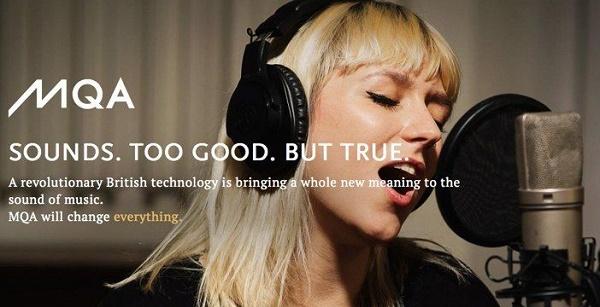Meridian MQA, Part 2: Does the High-Res Audio Technology Have a Shot?

Of course, companies don't spend time and money to develop new technology for the hell of it. They spend resources when they've identified a potentially lucrative market opportunity. MQA, it seems, provides us with a textbook example of why a new technology is brought to market....
It is widely agreed that streaming audio is a growth market. Discs are so last-century, and downloading is dying. Apparently, consumers want to pay subscription fees and listen to whatever, whenever. Thus smart companies are identifying technologies associated with audio streaming. For example, one of Apple's primary reasons for acquiring Beats was to get its streaming service.
Meridian apparently wanted to get into streaming. But where are the business opportunities? Standard-res streaming is pretty much a done deal. What about high-res streaming? Hmmm, the large sizes of high-res files are a pain, and solving that issue would present a first-class opportunity. Lossless coding would help. But that ship has already sailed; lossless data reduction isn't really adequate for high-res streaming, and besides, Meridian is already onboard with MLP. How else can file size be reduced? Masking, as with MP3 and AAC is verboten—audiophiles, the target audience for high-res, would never embrace it. How else to do it?
Meridian's answer is to smartly observe the realities of the content of high-res files, which provide clear ways to save data, while assuring audiophiles that beyond-Red Book content is being captured. In short, high frequencies can be coded and their limited dynamic range allows bit savings; cleverly, those relatively few bits can be tucked into the unneeded lower bits of the baseband 24-bit field. As a result, files with hi-res content can be streamed as easily as Red Book files. This gives Meridian a terrific sales pitch to any streaming company that wants to differentiate itself by offering high-res streaming.
Plus, when the original A/D converter used for the recording has been identified, and has been cataloged by MQA, metadata describing it can be conveyed with the audio data, and at playback the system can unwind some of the A/D converter's nonlinearities. Hence Meridian can claim that MQA can improve the fidelity of the original file. This also appeals to any streaming company as a differentiating feature for itself, and a value-added feature for customers.
How will Meridian make money? Presumably it licenses MQA to streaming companies, and to anyone who wishes to use decode the bitstream or use the metadata. Because closed, proprietary technologies are always a tough sell, MQA is compatible with regular decoding. Anyone can play back the standard-res file. Of course, the high-res content and metadata tweaking would be lost.
MQA hits several marketing sweet spots. It conveys the high-frequency content of high-res (but not coded with 24 bits), its baseband 24-bit field looks impressive (but doesn't have the actual bit depth that some audiophiles crave), it claims to improve on original fidelity through metadata, and its standard-res file can be played by ordinary decoders. All in all, it is a pragmatic way to stream audio with extended content—providing exactly the kind of sizzle that helps sell steak. But only time will tell if MQA is a cash cow.
- Log in or register to post comments






























































